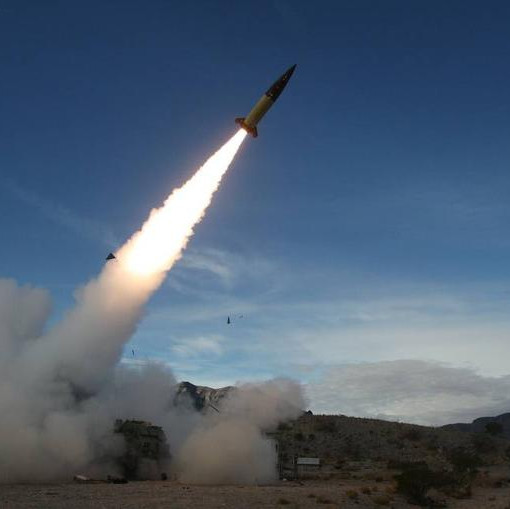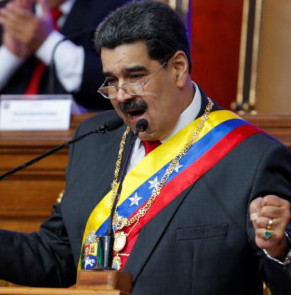On the eve of our Victory Day, German Foreign Minister Heiko Maas, coauthored with Professor Andreas Wirsching, published a column in the Spiegel magazine titled "There can be no politics without history" on the occasion of the 75th anniversary of Nazi Germany's complete unconditional surrender signed on the night of May 9 in Berlin. The Minister seems to have intentionally chosen a well-known historian as his co-author. The content of the column should have looked like a scientifically grounded and not just an up-to-date statement of a politician about the good round figure. Thus, it's a safe bet that the Minister pursued several specific political goals simultaneously.
This becomes clear if you read the entire column to the end. Given that despite the EU's anti-Russian sanctions, the German government is trying to preserve the foundations of German-Russian economic cooperation as far as feasible, preventing them from being completely destroyed, the unequivocal statement that Germany is the only one responsible for the outbreak of World War II could not but induce a positive response with Moscow. It is no accident that most Russian media have primarily focused on this thesis by Heiko Maas. All the more so as it was followed by a condemnation: "Those who sow doubt about this and thrust other countries into the role of perpetrator do injustice to the victims, exploit history for their own ends and divide Europe".
However, one shouldn't invent of Heiko Maas' words in accordance with the Russian view of history and its current development, although the Minister urges Germany's "self-criticism", fiercely attacking nationalism and anti-Semitism that are lifting up their heads in Europe. Behind this positively fair thesis one can already see the domestic policy goal of the Minister as a representative of the Social Democrats in Berlin's ruling coalition. The parliamentary elections of 2021 are not far off, while SPD's prospects to show a reasonably decent result are deplorable. According to all the surveys and last year's outcome of federal state parliamentary elections, popular support for the Social Democrats, once a "people's" party, collapsed to some 10 per cent. At that, their main competitor is the Alternative for Germany (AfD) party, which has a more than double edge over the SPD. Apparently, it is the AfD that the Minister is traditionally seeking to brand as nationalists and anti-Semites.
Heiko Maas further states that Germany is committed "to a strong and united Europe" and speaks of "the knowledge of the unparalleled crimes perpetrated by Germany in the 20th century, crimes that found their most monstrous expression in the Holocaust ". He writes that "in Russia and other countries of the former Soviet Union, the heroes are commemorated and the end of the war is celebrated with victory parades. The Western Allies also celebrate 8 May. To this day, we too are grateful to all those who fought against the Nazi dictatorship." However, if the first part of the article can still be deemed as an attempt to somehow reign in overzealous Russophobic politicians from Eastern Europe who are deliberately "confusing" the aggressor with the victims of aggression, the second half of the column makes it clear whom the German Minister and historian see as part of a "united Europe". Anyone but Russia.
Because, according to Heiko Maas and apparently the entire ruling coalition in Germany, " in Poland, the Baltic states and other countries in Central, Eastern and Southeast Europe have very mixed feelings about this date. Their joy about the defeat of the Nazis is tinged with the start of another form of oppression and external domination – an experience they share with many people in East Germany." It is here that we hear the "real European" Mr. Maas, who, having pointed out to his minor partners that they should not ride past the hounds, irritating the Kremlin with small-scale nasty tricks, immediately recognizes them as having suffered under Moscow's sway.
Well, as for the people in Eastern Germany, the Foreign Minister should not hold his breath. Their memory does not depend on his reasoning. It is notable that, despite the cancellation of mass events over the Covid-19 pandemic, many have privately brought flowers to the Soviet war memorials on May 8, both to such large ones as in Tiergarten, Treptower Park and Schӧnholzer Heide in Berlin, and to much more modest ones, like those in the villages of Groß Köris and Grebendorf in the state of Brandenburg. Moreover, we have to hand it to the fact that all the Soviet memorials are maintained in a perfect condition in Germany, thanks to both the country's authorities and ordinary citizens, who have no problems with their historical memory and responsibility to history. So, for instance, in the Berlin district of Friedrichshain, flowers were laid at the memorial plaque to Nikolai Berzarin, the first commandant of Berlin.
Tellingly, German President Frank-Walter Steinmeier, who made a speech at the Neue Wache memorial in Berlin after a modest (due to the pandemic) wreath-laying ceremony attended by Chancellor Angela Merkel, spoke of "liberation that came from outside". At the same time, he mentioned neither the allies in general, nor the Red Army in particular. Think of that. Although he had enough tumid words to say. So, it doesn`t pay to overestimate the "thank you" phrase pronounced in Russian at the Brandenburg gate.









